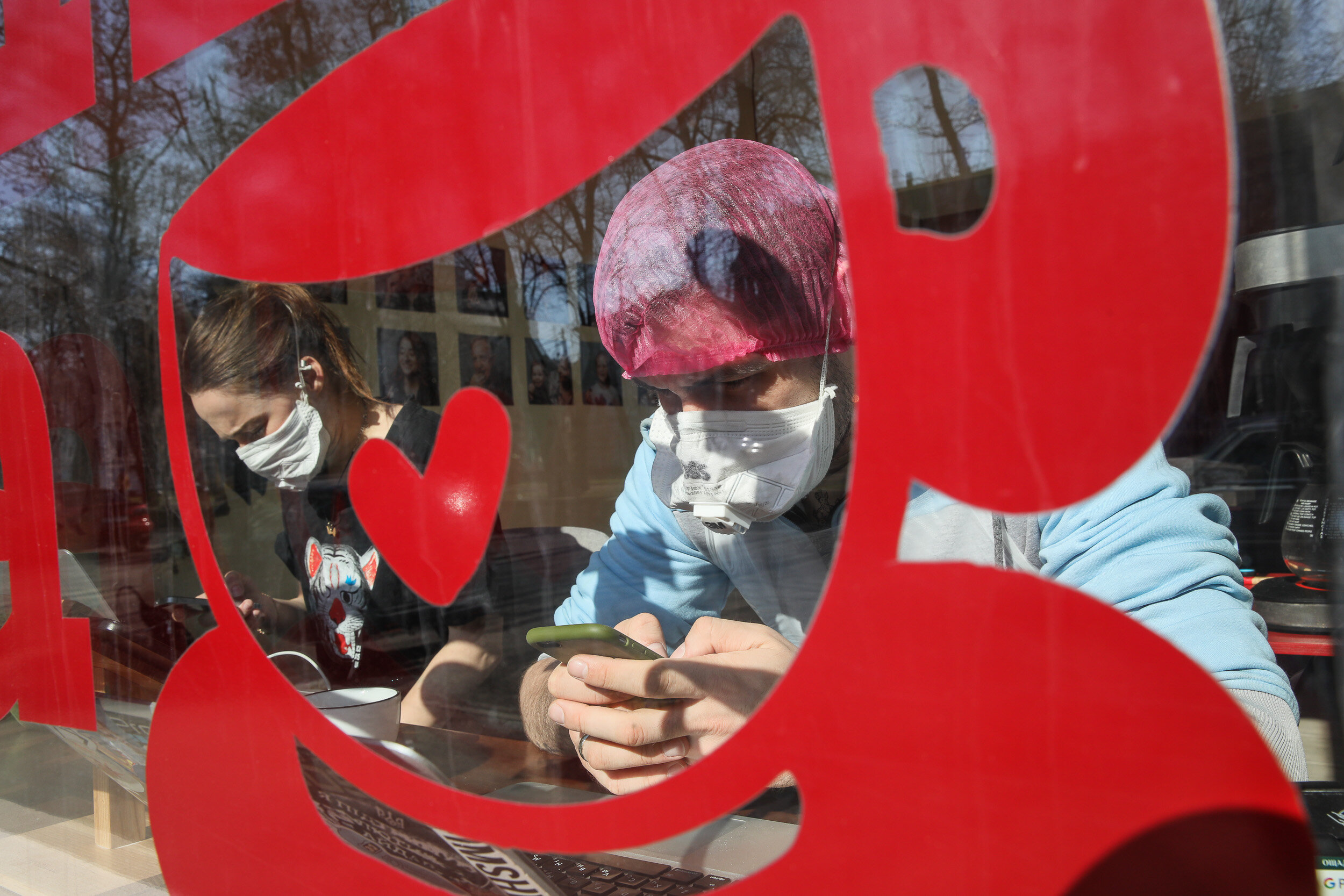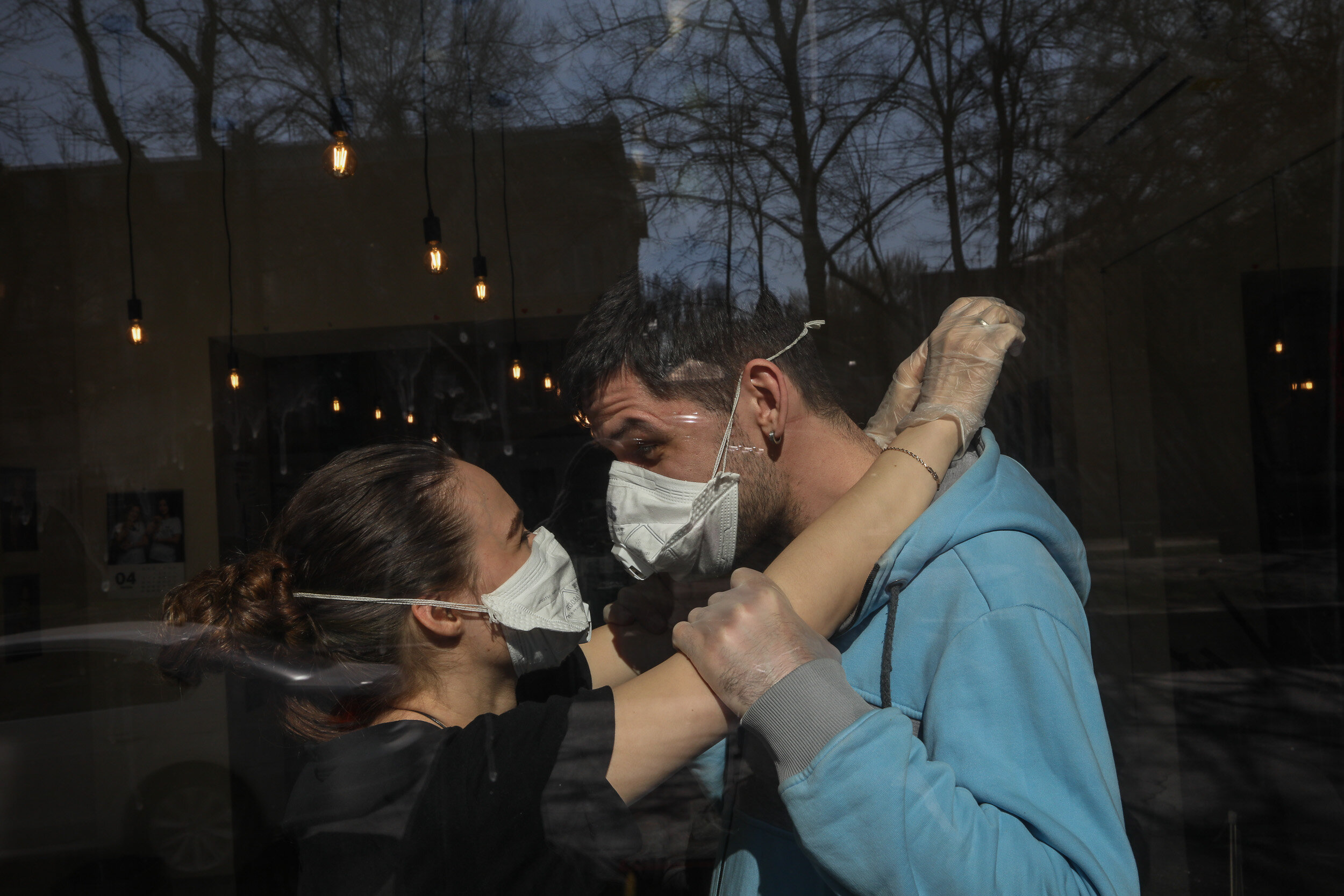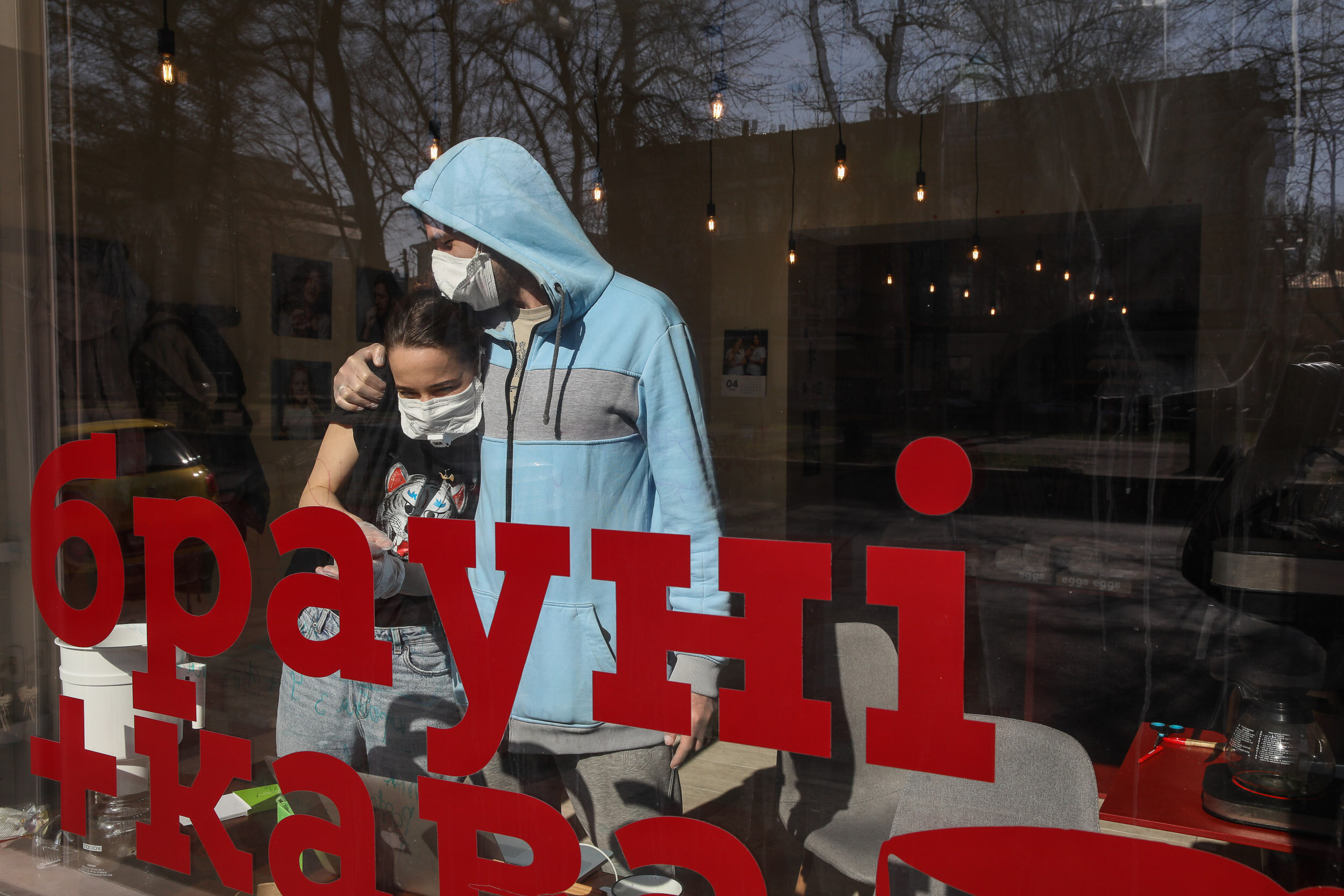Editor’s Note: Ukraine’s businesses are struggling after the country introduced nationwide restrictions on movement and travel starting on March 12. The restrictions have been toughened since then and are set to expire no earlier than April 24, but are likely to last longer. Most businesses are closed with employees working remotely. The exceptions include supermarkets, pharmacies, banks, parcel delivery services. The borders are closed to most forms of traffic, except Ukrainians returning by foot or car. Most domestic transportation is closed or heavily restricted. Estimates range on how deeply the ensuing recession will harm Ukraine. The Kyiv Post talked with entrepreneurs about their daily struggles, asking how the quarantine has affected their ventures and what they are planning to do once it’s lifted.
We want to hear your personal story of survival during this national lockdown. Please contact us at [email protected]
Roman Nabozhniak
co-owner of Veterano Brownie, a coffee shop and brownie bakery in Kyiv. Founded in March 2017, the cafe started as a small bakery and now employs seven people
“We had closed our cafe to guests one day before the official shutdown was announced, as the situation with the coronavirus’ spread was not clear. And we didn’t want to put our employees, guests and ourselves at risk by coming in contact with dozens of people every day. We had announced free delivery across Kyiv three or four days before our doors closed. We deliver brownies ourselves with our kitchen staff and baristas. The first two weeks were really tough, but now we are adapting to the new business reality of being an online coffee and brownie shop with its own delivery.
“The most stressful thing is the uncertain situation with the spread of the virus in Ukraine. I can’t say I believe the official numbers represent reality, so I can’t just make any long-term growth or shut down strategies. We are trying to launch new products and are searching for new possibilities to work as long as it’s possible and allowed. We lost our coffee shop business (offline), but we launched delivery and coffee bean sales.
“We received lots of online orders and we were not ready to work with them smoothly along with all other duties that each business includes: accounting, buying, operational tasks and so on. In normal times, we would require more couriers for better delivery services. But we decided not to hire new employees, because we can’t be fully responsible for how they spent their first week of quarantine, how strict they were with their personal hygiene, who they met and so on. Obviously, we can’t give any 100% guarantee for the same story of our employees, but at least we know that we provided them with medical equipment; we control their temperature every day and we train them on personal and delivery hygiene rules. So now we face lots of tasks that could be delegated, but we decided not to hire new people during the quarantine period.
“We operate as an online shop of brownies and coffee. This is new for us, so we operate like a startup. We are expecting the quarantine to be extended at least till the end of May 2020. So we’ll try to keep on operating this way till that time and then reopen our coffee shop, but keep delivery service everywhere in Kyiv.
“A deep love for what we do makes (us) keep going despite the difficulties. Love for our guests and dedication to our main business goal – bringing moments of happiness to our customers. They were visiting us for our first year of existence, so we pay them back with bringing our cafeteria to them, wherever they spend their quarantine. Secondly, we also didn’t want our employees to lose their jobs and salaries, as they all run their own households. And thirdly, it’s our duty to keep on running because we believe that small businesses like ours might become the new basis for economic development in the future.
“We expect nothing from anyone as no one owes us anything. We are strongly supported by our customers and local communities of small businesses, partners and friends. So far, I cannot say the state officials realize what we are going to face in a couple of weeks, months. Neither do we. But my veteran experience says that we should only rely on ourselves, expecting nothing from anyone.
Read also : Roman Nabozhniak: Entrepreneur and war veteran finds peace through baking
“Business depends on many more external factors than the state, and it is way more flexible – especially small businesses. We transform quickly, we are responsible for what we do. There is a high necessity in educational campaigns among all the population on how to stop spreading coronavirus, but often it has nothing to do with the full shutdown of businesses. State authorities should be honest in informing society on the current situation, not like it used to be in the Soviet Union. State officials should be responsible in their choice of a health minister, and finally, understand that the whole human race is in the same boat.”
CORONAVIRUS IN UKRAINE: WHAT YOU NEED TO KNOW
- As of early April 3: 23 people have died from COVID-19 in Ukraine; 3 Ukrainians died in Italy. 19 people have recovered.
- 942 confirmed cases of COVID-19 in Ukraine as of early April 2. The first case was identified on March 3.
- Ukraine has extended its quarantine measures until April 24.
- Infographic of quarantine measures in place until April 24.
- The measures shuttered most everything but hospitals, supermarkets, pharmacies, banks, gas stations, and other critical enterprises.
- How the Ukrainian government has been responding: TIMELINE
- Misinformation on coronavirus is going viral in Ukraine.
- Doctor’s advice: How to stay safe.
- Foreign Ministry: What you need to know about traveling to and from Ukraine now
- Why the Kyiv Post isn’t making its coverage free in the times of COVID-19.
- Coronavirus stops the Kyiv Post’s print edition for now.
- Where to buy masks.
Effects on the economy:
- COVID-19 is already inflicting harm on Ukraine’s economy.
- Invisible Threat Lurks Undetected: Top stories from March 27, 2020 PDF edition.
- The former minister of economy says half a million Ukrainians may lose their jobs in the COVID-19 crisis.



